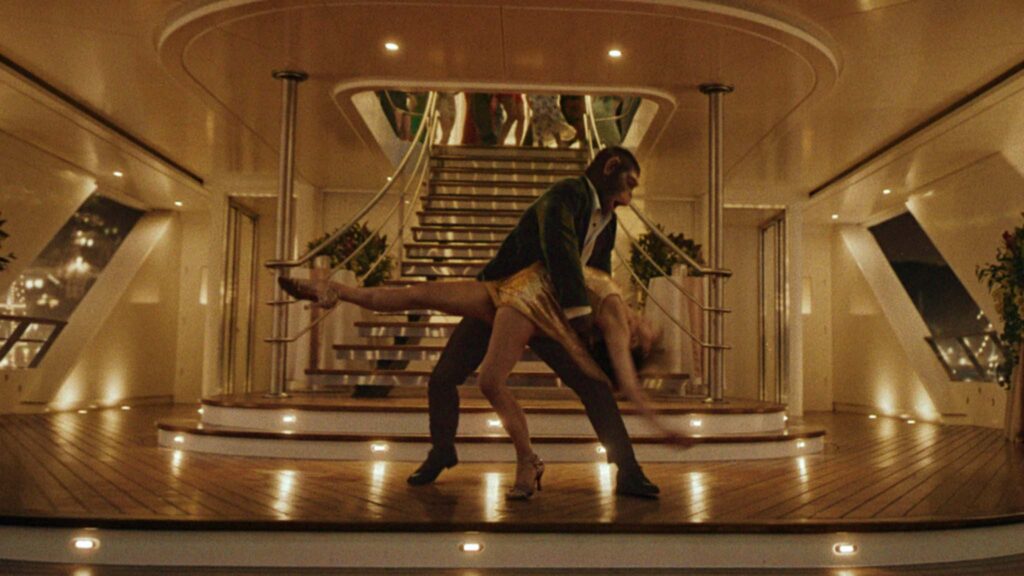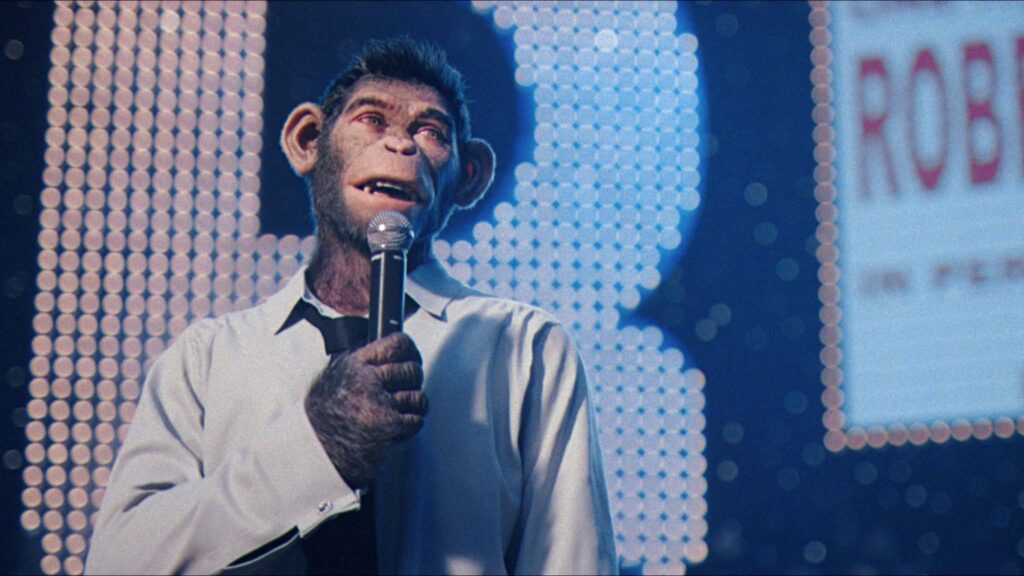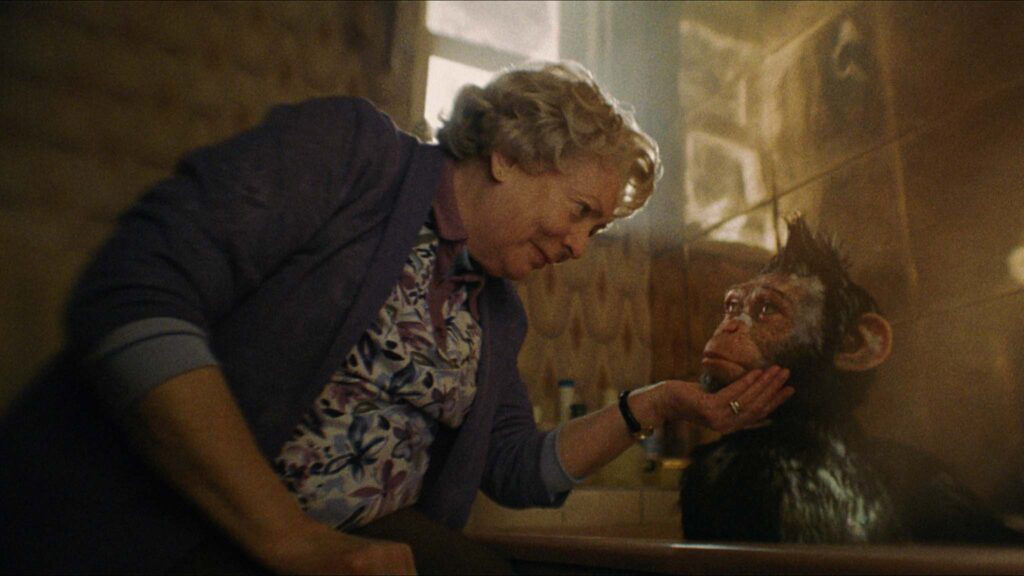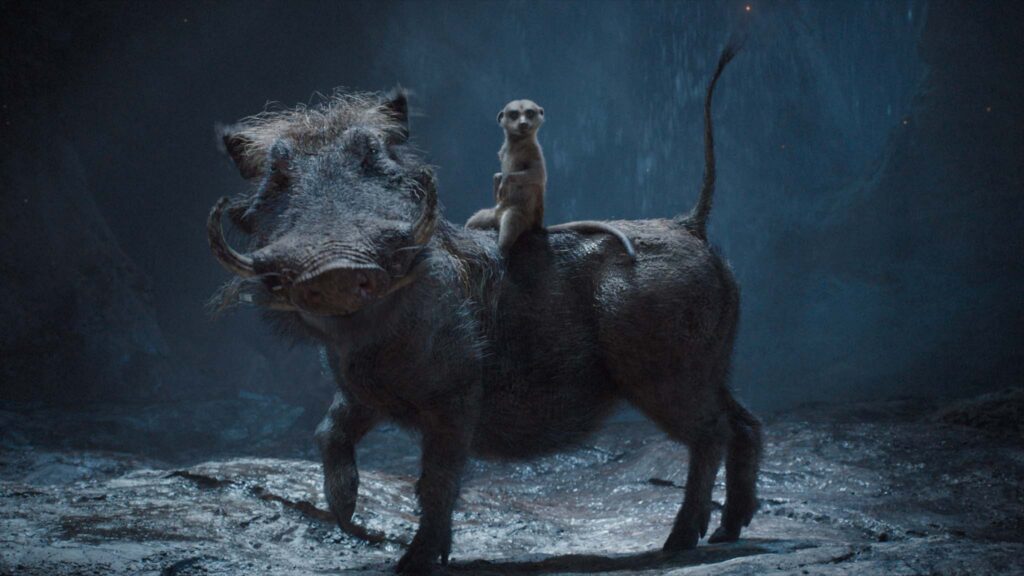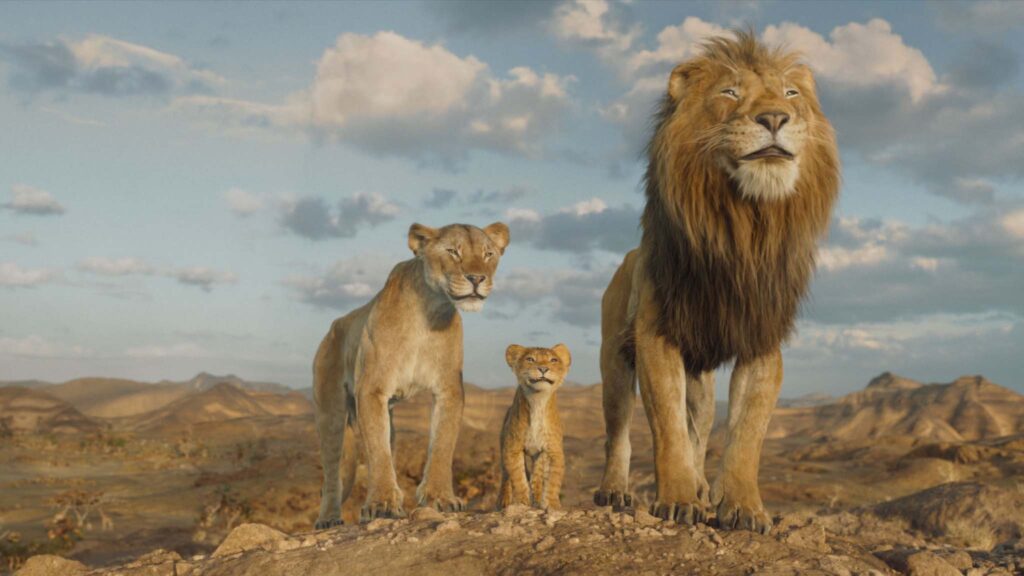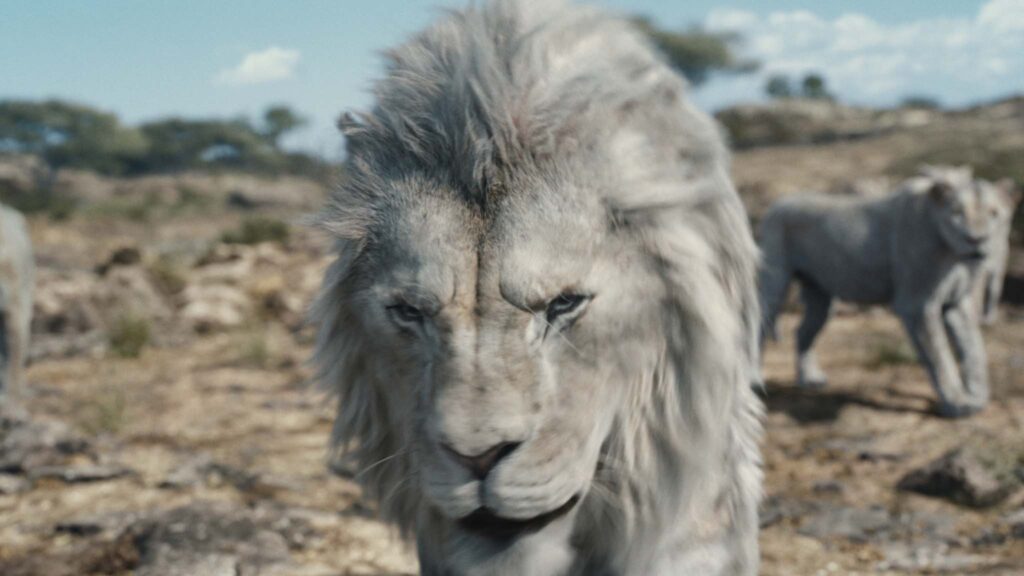Musical
Better Man (15)
Review: Seven years ago, Australian visual effects artist Michael Gracey razzle-dazzled with his barnstorming directorial debut The Greatest Showman, starring Hugh Jackman as circus ringmaster PT Barnum. Breathlessly staged song and dance numbers distinguished Gracey as a filmmaker with an innate understanding of how to translate the thrilling kinetic energy of a stage musical to the widescreen format. He performs more eye-popping miracles behind the camera of this deliriously unconventional Robbie Williams biopic, co-written with Simon Gleeson and Oliver Cole.
Narrated with unflinching candour by the Brit Award-winning singer-songwriter, Better Man charts Williams’ meteoric rise and subsequent drug-fuelled self-destruction through the digitally rendered eyes of a chimpanzee – a performing monkey with the speaking voice of actor Jonno Davies and the singing timbre of the star. New Zealand-based special effects house Weta, who conjured the realistic primates of the recent Planet Of The Apes reboot, meld motion capture performance and computer trickery to milk every droplet of emotion from a stardom-seeking protagonist’s troubled childhood (played by Carter J Murphy) to his three sold-out shows in 2003 at Knebworth.
A fractious relationship between Robbie and his entertainer father, Peter Conway (Steve Pemberton), convinces the gregarious youngster to audition for a new boy band managed by Nigel Martin Smith (Damon Herriman). Robbie is cast alongside Gary Barlow (Jake Simmance), Howard Donald (Liam Head), Jason Orange (Chase Vollenweider) and Mark Owen (Jesse Hyde) in Take That – but clashing egos and a doomed romance with All Saints singer Nicole Appleton (Raechelle Banno) untether him from the unstinting support of grandmother Betty (Alison Steadman). When he eventually severs ties with Take That in July 1995 to pursue a solo career, Robbie angrily sticks up two fingers to his doubters and collaborates with songwriter Guy Chambers (Tom Budge) on an album to bare his troubled soul.
Better Man is an unapologetically flashy and surprisingly affecting meditation on the corrosive power of celebrity, which refuses to project Williams’ struggles through a rose-tinted lens. The ape protagonist repeatedly neglects those closest to him then self-abuses to the brink of annihilation. Amidst the rage, there are moments of heartbreak (a pregnancy termination soundtracked to She’s The One, the funereal lament of Angels) as well as the best musical sequence committed to film this year.
Shot at 3am on location with 500 dancers, Gracey stages Rock DJ as a tub-thumping syncopated stomp down Regent Street in London, that skids and tumbles through shops, over a black cab and along the top deck of a tour bus. The centrepiece anthem is a pure jolt of adrenaline. The costly decision to depict Williams as a chimpanzee works surprisingly well and immediately isolates him. In stark contrast, the script’s chosen ending is conventionally sweet and mawkish, and something of a disappointment compared to the whirling invention on display for the previous two hours.
Find Better Man in the cinemas
Animation
Mufasa: The Lion King (U)
Review: Disney’s 2019 photorealistic remake of The Lion King traded heavily on technical excellence to justify a leisurely second prowl on the sun-baked savanna with a script that borrowed heavily from the animated original and new orchestrations of Elton John and Tim Rice’s paw-tapping songbook. Moonlight director Barry Jenkins is an unusual choice to helm a visually arresting sequel that traces the origins of Simba’s father through original songs composed by Lin-Manuel Miranda of Hamilton, Moana and Encanto fame.
Dedicated to the memory of James Earl Jones, who voiced the leonine leader of the Pride Lands in previous film and TV incarnations, Mufasa: The Lion King lightly expands back stories of pivotal characters and lays the foundations of the sibling rivalry that leads to cold-blooded murder during a wildebeest stampede. Rafiki, Timon and Pumbaa provide light relief via pointedly self-referential dialogue. When the flatulent warthog mentions the stage version of The Lion King, his meerkat buddy shrieks, “Please don’t mention the play. I’m nothing but a sock puppet!” Another ribald outburst gives Timon pause for thought. “We’ll get letters from legal,” he notes.
Apart from these broad skits, Jeff Nathanson’s script is serious in tone. Seven new original songs are forgettable – I struggled to find a single earworm between them – and the sequel’s standout musical interlude is a raucous, tongue-in-cheek rendition of Hakuna Mufasa.
A simple framing device introduces us to curious lion cub Kiara (voiced by Blue Ivy Carter), daughter of Simba (Donald Glover) and Nala (Beyonce Knowles-Carter), and heir to everything the light touches around Pride Rock. Kiara fears she will never emulate the strength and courage of her father so Rafiki (John Kani) recounts the origin story of her noble grandfather Mufasa (Aaron Pierre) with frequent interjections from Timon (Billy Eichner) and Pumbaa (Seth Rogen).
The inquisitive cub learns that Mother Nature cruelly separated Mufasa from his parents and he was eventually rescued from a watery grave by sympathetic lion cub Taka (Kelvin Harrison Jr). Taka’s father Obasi (Lennie James) counsels his son to sever ties to Mufasa because, “one day he will betray you, it’s what strays do”. Regardless, Taka and Mufasa become inseparable, surrogate brothers destined to torment hornbill Zazu (Preston Nyman) and stand shoulder-to-shoulder against the territorial challenge of power-hungry white lion Kiros (Mads Mikkelsen) and his acolytes.
Mufasa: The Lion King slinks through the motions, heavily telegraphing feline betrayal between chosen family. Solid vocal performances tug heartstrings but Mikkelsen’s vengeful chief antagonist is a mild-mannered surrogate for Scar from the original without any of the lip-smacking campness. Visuals are impeccable, most notably in pulse-quickening sequences set around fast-flowing water. Unfortunate big cats make a big splash. Jenkins’ picture creates small ripples.
Find Mufasa: The Lion King in the cinemas


